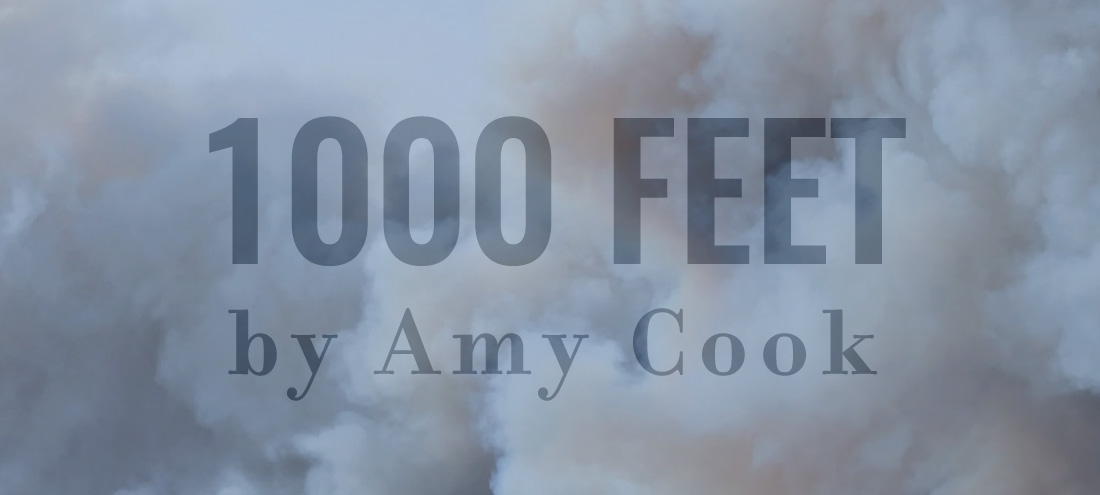by Amy Cook
Honorable Mention – Flash 405, June 2023: “Crescendo”
Nonfiction

Fingertips flying, I transcribe the presentation; the words almost simultaneously appear on Jay’s screen. We’re sitting in a musical theater workshop, a curious place to be a Deaf composer. Mavis Beacon taught me to type so well that I follow the presentations at the rate of speech. Whatever Jay misses in the lip reading or the flub of the AI dictation machine, I more than make up for.
The song ends, and the moderator takes comments.
“Jay,” the moderator nods.
“JAY!” I type, and then confirm it by signing his name, scooping my right pinky through the air in the shape of his initial, landing with my thumb in the air, triumphantly.
When it’s his turn to present a song, Jay often opts to use a recorded track, although he plays piano beautifully. A track, he says, can be relied upon. It holds a steady volume that doesn’t overcompensate for a singer it can’t follow. When the song ends, I type in the generous feedback that he receives, so careful to accurately report. Praise must be heard.
I know, because he has told me so, that Jay’s Deafness is not made of silence. It is not a lack of sound. It is smoke and pandemonium. It is hum and whistle and wind, staccato and metal; it is despair and trash-can clang. That he can write music that soars and transforms is some sort of miracle.
No more a miracle, I guess, than his survival. That Tuesday, he stood outside, on his balcony, carefully documenting ash and fire pouring out of the South Tower. In his own footage, he debates leaving, but he cannot be pulled from documenting what is sure to be the most important day of his life. The video, which is heavily narrated, is pierced with sirens and crowd, but there’s no crescendo of sound—not from Jay, at least, until the tower falls. Now, he appears back on screen, panting. Wearing operator headphones, he tries desperately to reach his wife, or anyone who may still be alive. So bleak is the end of the world that it does not occur to him that the roar of the destruction will cause him to lose his hearing completely. So colorless is the end of the world that when the intact azure sky begins to crack through the haze, it seems unforgivable. So loud is the end of the world. There’s music.
Judge’s Comments:
I appreciated how seamlessly this piece moves between extremes—color and bleakness, sound and silence—while using rich and musical language to draw out the nuances of each sensory realm. (“It is hum and whistle and wind, staccato and metal; it is despair and trash-can clang.”)
Amy Cook is an MFA candidate at Pacific Lutheran University (Rainier Writing Workshop) and participated in the 2021 Kenyon Review Writers Workshop in Creative Nonfiction. Her essays and poems have been featured in more than two dozen literary journals, magazines, and anthologies, including Santa Fe Writers Project Quarterly, great weather for MEDIA, The Other Journal, and Apricity Press. She was a finalist for the 2023 ProForma competition (Grist: A Journal of the Literary Arts), a finalist for the Disruptors Contest (TulipTree Publishing, 2021), a semifinalist for the 2022 Brooklyn Non-Fiction Prize, and an honorable mention recipient in the New Millennium Writing Awards (2022). She is a reader for the literary magazine CRAFT.
Photo Credit: Malachi Brooks